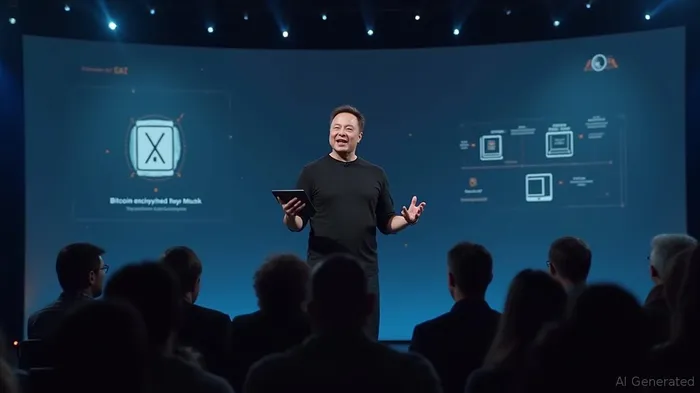Elon Musk Announces Bitcoin-Style Encryption for XChat
Elon Musk has announced the rollout of "Bitcoin-style" end-to-end encryption for XChat, the revamped direct messaging service on X (formerly Twitter). This announcement, made via a tweet, has sparked a mix of excitement and skepticism among industry insiders and observers in the tech and cryptocurrency worlds. XChat, developed entirely in the Rust programming language, includes features such as end-to-end encrypted messaging, disappearing messages, support for any file type, and cross-platform video and audio calls, all without requiring a phone number.
Musk claims that XChat's encryption is built on the same robust cryptographic foundations that protect Bitcoin. Bitcoin's security relies on elliptic curve cryptography (ECC), specifically the Elliptic Curve Digital Signature Algorithm (ECDSA), which allows users to generate public/private key pairs and securely sign messages. In the context of messaging, "Bitcoin-style" cryptography likely means that XChat would utilize similar ECC-based techniques, such as Elliptic Curve Diffie–Hellman (ECDH) for secure key exchange and ECIES for message encryption. This can provide strong, efficient end-to-end security, with only the sender and recipient capable of reading the messages.
However, some cryptography experts have pointed out that Bitcoin itself does not encrypt transactions but rather signs them. Therefore, the "Bitcoin-style encryption" label is more of a marketing phrase than an engineering term. Security researcher Ian Miers commented, "Bitcoin primarily uses signatures, not encryption. It's like saying, we decided to drive our rocket on water, as NASA uses Hydrogen and Oxygen." Others note that while Rust is a secure, new language, it is not a guarantee of cryptographic correctness.
The cryptosphere and security communities have divergent views on XChat's encryption. Some privacy advocates welcome the move as a step toward mainstream adoption of strong encryption, potentially introducing millions to public-key cryptography and secure digital communication. Others caution that without open-source code and third-party audits, users are relying solely on Musk's guarantee, which is risky given the platform's history of data breaches. Cryptography professor Ian Miers stated, "Needless to say ‘Bitcoin style’ and ‘Rust’ are not descriptions of an encryption scheme, nor are they strong indicators of security for a messaging app."
If XChat's security holds up to scrutiny, it could be a game-changer for mass-market messaging. Features like disappearing messages, file sharing, and phone number-less accounts position XChat to compete directly with WhatsApp, Signal, and Telegram, but with the added benefit of crypto-motivated security. Some believe this could demystify public-key cryptography for millions, paving the way for more widespread use of crypto. However, the lack of technical clarity and the closed nature of X’s stack have left many experts cautious. Without open protocols or code audits, it is impossible to verify if XChat’s encryption is as robust as Musk claims or if it is merely marketing spin.
In summary, while Musk's announcement of "Bitcoin-style" encryption for XChat has generated significant interest, the actual security and effectiveness of this encryption remain uncertain. The cryptography community is divided, with some praising the potential for mainstream adoption of strong encryption and others expressing concerns about the lack of transparency and third-party audits. The true impact of XChat's encryption on secure messaging and the broader adoption of cryptography will only be known through further scrutiny and real-world use. 
Quickly understand the history and background of various well-known coins
Latest Articles
Stay ahead of the market.
Get curated U.S. market news, insights and key dates delivered to your inbox.



Comments
No comments yet